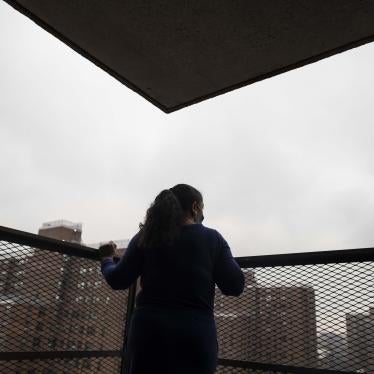Kentucky is one of several US states that allows private companies to supervise people on probation and requires people to pay companies for that service. Based on its experience researching the industry, last week, the American Civil Liberties Union (ACLU) of Kentucky released a report describing how opaque the industry is, and called for either ending the use of private probation in the state or implementing stronger regulations.
Human Rights Watch’s own research in other states has shown how a lack of transparency around the practices and finances of probation companies can allow abuse to proliferate unchecked, with devastating consequences for poor offenders.
Kentucky has six companies operating in at least a quarter of its counties, the first of which started operating in 1989. It wasn’t until 2000 that Kentucky took any steps to regulate private probation, though even then there was no way to ensure that companies were following the rules.
Over the past three years the ACLU of Kentucky has made multiple attempts to examine the state’s use of these companies. The ACLU’s attempts in 2015 to request information from judges about private probation companies – records judges were meant to collect under the state’s rules – yielded no results. Private probation companies also refused to provide details, saying they weren’t subject to the state’s open records laws.
New, more stringent private probation rules have since taken effect. In 2017 in partnership with Human Rights Watch, the ACLU sent new requests to a hundred district court judges about their use of private probation. This time, about 70 judges responded, showing varying use across the state with roughly a quarter of Kentucky’s counties using private probation. In one county, judges in the same courthouse took differing approaches to probation: while one uses a private probation company in certain types of cases, another judge does not require any kind of supervision for low-level offenders, meaning no additional fees. The fees private probation companies charge to people under their supervision also varied from county to county.
Despite a higher response rate, information on the number of people supervised by probation companies, the total each person pays for their supervision, and the outcomes of their cases were not available as Kentucky does not require courts to track this information.
The uneven use of private probation across the state means starkly different experiences for people in Kentucky’s criminal justice system. As a result, the ACLU is recommending ending the use of private probation, short of which it calls on the state to ensure greater transparency, regulation, and oversight of the industry.
|
Dispatches
Poor Transparency in Kentucky’s Private Probation Industry
ACLU Calls for Change
Your tax deductible gift can help stop human rights violations and save lives around the world.
Region / Country
Most Viewed
-
April 25, 2024
Burkina Faso: Army Massacres 223 Villagers

-
September 3, 2019
“Don’t Punish Me for Who I Am”

-
June 14, 2018
Africa: Pregnant Girls, Young Mothers Barred from School

-
April 27, 2021
A Threshold Crossed

-
April 22, 2024
Iran: Security Forces Rape, Torture, Detainees




